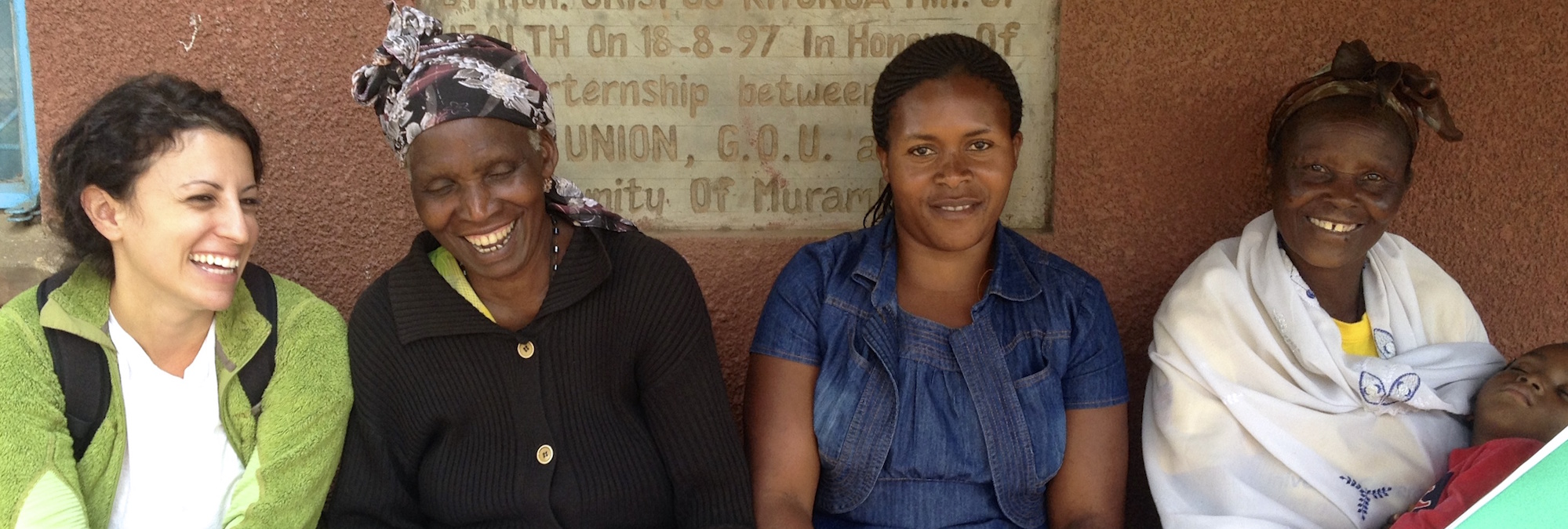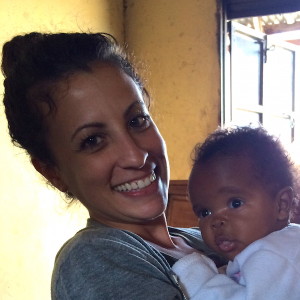Lydia’s Story: Empowerment Through Ethical Sourcing & Fair Trading
A First Hand Look at Global Poverty, Social Justice & Supporting Artisans By Andrea SchecterI don’t know a lot about “Fair Trade” with a capital “F”, capital “T”. But after almost a year of living and working at a hospital in rural Uganda, I have learned a bit about global poverty and social justice and how the two intersect.
Last week I met Lydia. She’s a 31-year-old Ugandan woman who lives and works in Kisoro, a small town in the southwestern corner of Uganda where I’ve lived the last year. I wandered into a small crafts shop in town, as one of my close friends just had a baby, and I was looking for a unique crazy-aunt-who-lives-in-Uganda gift for him. I asked Lydia, who greeted me as I entered, if they had anything good for babies, and she disappeared into the back room. She reappeared a minute later with exactly what I was looking for – a mobile of African animals held together by twine.
“That is perfect! Where is it from?”
She smiled and said, “I make them here!” She waved her arm at the back room, and I peeked my head in. Two sewing machines sat on wooden tables, with various printed fabrics strewn about, bags and cases and mats and crafts in various states of completion. Gospel music played on a small radio perched on the table. It was a warm space, full of bright colors and patterns, windows open onto a view of the volcanoes that overlook our little town.
Lydia sells her crafts mainly to tourists; they’re unaffordable for locals and, honestly, most Ugandans I know with a new baby would prefer more practical gifts like basins for washing or strong cloths to tie the baby to Mom’s back. She buys fabrics at the market on Mondays, and pays the owner of the café/shop a small monthly fee to “rent” her space and her sewing machine. She loves what she does, she tells me. She always loved making things as a kid, and when she was 10 she learned to use a sewing machine from her father’s sister, who is a tailor. Whenever her aunt wasn’t using the machine, she would steal small scraps of fabric and piece them together into bags or wraps or even tops. When she got married, she moved to town from the small village where she grew up, and met the owner of the crafts shop through her husband’s friend, who recommended her for the job. She’s been there for almost five years, working hours that allow her to drop off and pick up her youngest daughter from school. Some of the income that she brings home goes toward hiring someone to harvest the vegetables from their plot of land, backbreaking physical labor that allows her to feed her family a diverse diet of fresh tomatoes, cabbage, peppers, beans, and potatoes. It also pays for school fees for her kids and, last month, paid for transport for her mother to get from the village to the hospital when she was ill. When her children are sick, she can go to the pharmacy to buy cough syrup, and she wears sneakers that, while secondhand, have a thick enough sole to protect her feet from the rocks that litter the dirt roads around town.
So while I don’t know too much about Fair Trade, I now know Lydia, who to me embodies everything that should be fair and just about trade and business. Businesses like The Aesthetic Sense: Goods for the Soul that support artisans like Lydia take a moral stance in the fight against global inequality. They truly empower women to take care of themselves and their families and live happy and productive lives – I’ve seen it firsthand.
FAIR TRADE AND ETHICALLY SOURCED PRODUCTS: truly they are Goods for the Soul





